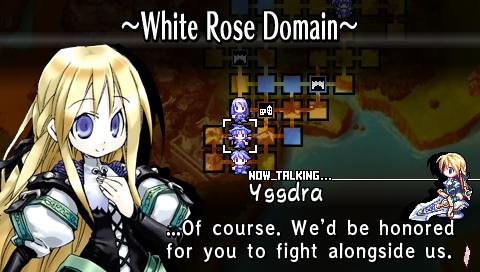12DOVE Verdict
Pros
- +
Complex and engaging strategy-RPG action
- +
Beautiful 2D sprites
- +
Quality voice-overs in story scenes
Cons
- -
A lot to learn at the beginning
- -
Story's kinda lame
- -
Too many menus
Why you can trust 12DOVE
If you’re going to port a Game Boy Advance game to the PSP, this is how you do it. Yggdra Union, a unique and meticulously deep strategy-RPG tragically over-looked on the GBA, shines in its spiffied-up PSP incarnation. With a skillful re-localization, fully voiced story scenes and updated graphics that enable the great 2D sprites to really shine, Yggdra Union blossoms on the PSP.
Aside from the dialed-down difficulty level, the PSP port keeps the gameplay completely un-tweaked. You’re guiding Princess Yggdra, whose kingdom has been overrun by a nasty imperial force, to reclaim her kingdom with the help of a huge roster of knights and knaves. The story plays out in nicely voiced conversations between battles that take place - like in most SPRGs - on a large (but extremely simplistic) grid with houses, varied geography, and tiny icons representing enemies and allies.
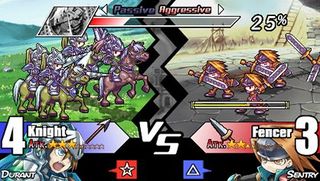
Governing your unit’s movements are magical cards that determine how much ground you’ll be able to traverse. These cards also determine your party strength and grant bonuses to certain weapon types. Additionally, each card grants your party a single skill or spell for the turn in which it’s in play – with dozens of cards, there’s a huge variety of abilities to consider. The system seems complicated (and a bit weird), but it’s actually a really elegant way of conglomerating multiple subsystems into one. You’ll be spending more time thinking strategically about which cards to bring into battle, and when to use them, than trying to remember what your options are in the first place.
As user-friendly as the card system is, there’s still a steep learning curve when you factor in the rest of the gameplay intricacies. It’s initially daunting, and the neverending tutorials wear thin after the first hour or two, but after a little trial-and-error you’ll find all the systems complement each other nicely. Factor in things like geography, attack order, weapon and unit types, and there’s no such thing as a non-strategic decision in this game.
The biggest upgrade Yggdra Union receives in its transition from GBA to PSP doesn’t have to do with gameplay: the PSP’s screen is bigger. Yggdra Union’s battle screens are busy, to say the least – massive character portraits, tons of text and numbers, god knows how many meters and symbols tracking the battle, and sometimes up to a dozen characters on screen at once. It all made the game feel congested on the GBA’s tiny screen, but with the PSP’s widescreen display, it’s a lot easier to look at, and not just because there’s less visual traffic. The gorgeous sprites and character art got a subtle facelift – the art hasn’t been redone, but everything’s clearer and bolder than before, with all the detail and animation brought to life.
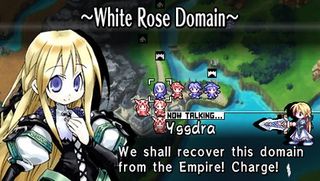
The game’s easier to play, as well. Its difficulty has been brought down a notch since the GBA release: the AI gets less aggressive each time you lose, you can retry any battle straight from the game over screen and any experience you gained before dying will carry over to your next attempt. That might sound too lenient, but it really makes coming to grips with the game’s multifaceted gameplay a much smoother ride.
The only complaints we can level against Yggdra Union are minor. The story’s kinda lame, with Yggdra being a real snore of a protagonist. Her cookie-cutter comrades are equally boring. Making things worse is a narrator cheesy enough to give the Soulcalibur announcer a run for his money. But the battles are the heart of this game, and despite a steep learning curve, they’re strategy-filled, immensely deep and visually stunning. If you missed it the first time around, there’s no reason to ignore Yggdra Union again.
Sep 22, 2008
More info
| Genre | Strategy |
| Platform | "DS","PSP" |
| US censor rating | "Teen","Teen" |
| UK censor rating | "","" |
| Release date | 1 January 1970 (US), 1 January 1970 (UK) |
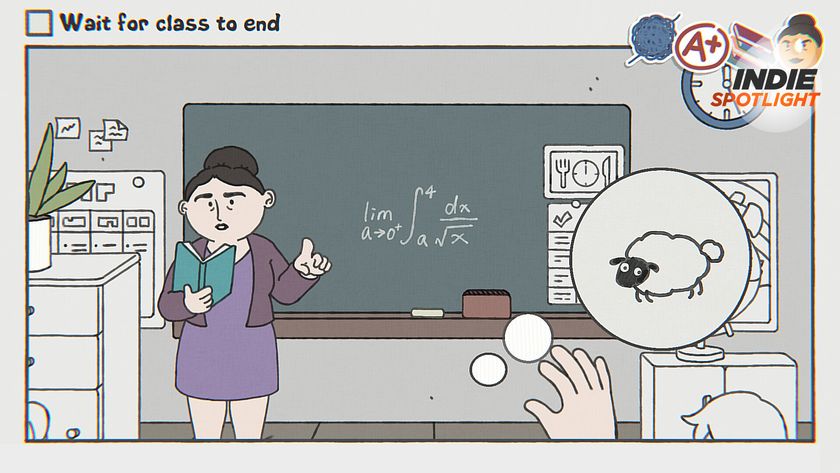
This puzzle game has done the impossible: waiting around for something to happen has never, ever been this fun

A fan-favorite Hawkeye character is returning for Daredevil: Born Again
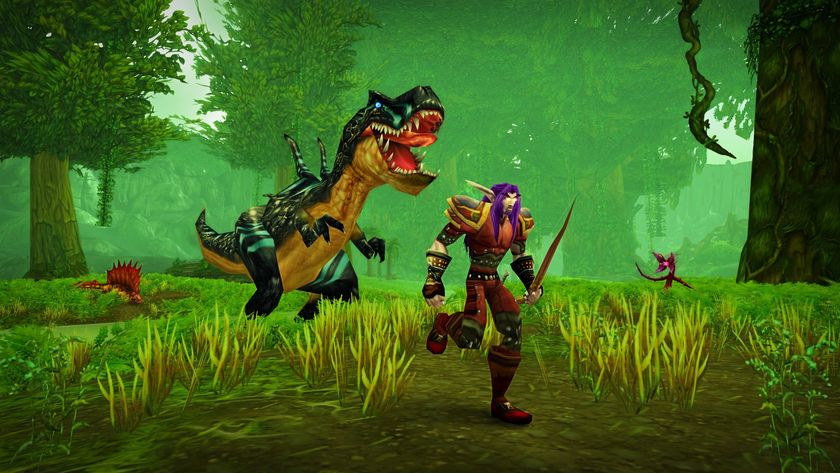
Former Ultima Online and Star Wars Galaxies dev says MMOs have "been in a rut for a long time" after World of Warcraft's popularity narrowed down "a much more diverse genre"
Most Popular





